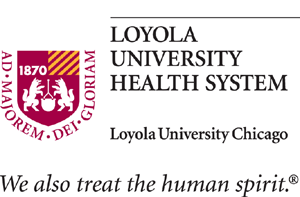Sorafenib Dose Ramp-Up in Hepatocellular Carcinoma (HCC)
| Status: | Completed |
|---|---|
| Conditions: | Liver Cancer, Cancer |
| Therapuetic Areas: | Oncology |
| Healthy: | No |
| Age Range: | 20 - 75 |
| Updated: | 10/2/2013 |
| Start Date: | December 2010 |
| End Date: | May 2014 |
| Contact: | Roniel Cabrera, MD |
| Email: | RONIEL.CABRERA@MEDICINE.UFL.EDU |
| Phone: | 352-273-9500 |
Multicenter, Randomized Pilot Study of the Effect of Sorafenib Dosing Schedule on Tolerability and Drug Delivery
Open-label study to evaluate the safety and tolerability of Sorafenib dose ramp-up (starting
at a lower dose and then gradually increasing the dose) versus standard Sorafenib dosing in
subjects with unresectable and/or metastatic hepatocellular carcinoma.
This is an open-label study that investigates the impact of a dose ramp-up strategy for
sorafenib in patients with HCC. Clinical trial and post-marketing data suggest that
sorafenib dose reductions and discontinuations due to adverse events are common and limit
the drug's effectiveness. It is our hypothesis that a dose escalation strategy for sorafenib
will improve the tolerability and allow a greater percentage of patients to remain on drug.
The primary end-point of the study is the total accumulated and median daily dose of
sorafenib delivered at month 2 and 4.
Inclusion Criteria:
- HCC must be unresectable and/or metastatic
- CPT score <9 at the time of screening (that is all Child A and Child B with a score
of 7 or 8)
- Age 20-75 years
- Signed informed consent
- EGD for variceal screening performed as per standard of care prophylaxis with
non-selective beta-blockers or ligation
- ECOG Performance Status ≤ 2.
- Adequate bone marrow, liver and renal function as assessed by the following:
1. Hemoglobin > 8.5 g/dl
2. Absolute neutrophil count (ANC) > 1,500/mm3
3. Platelet count > 50,000/mm3
4. Total bilirubin < 3 mg/dl
5. ALT and AST ( < 5 x ULN)
6. Creatinine < 1.5 times ULN
- Women of childbearing potential must have a negative serum pregnancy test performed
within 7 days prior to the start of treatment
- Women of childbearing potential and non-surgically sterile men must agree to use
adequate contraception (barrier method of birth control) prior to study entry and for
the duration of study participation. Men should use adequate birth control for at
least three months after the last administration of sorafenib.
- Ability to understand and the willingness to sign a written informed consent. A
signed informed consent must be obtained prior to any study specific procedures.
- INR< 2.3. Patients receiving anti-coagulation treatment with an agent such as
warfarin or heparin may be allowed to participate. For patients on warfarin, the INR
should be measured prior to initiation of sorafenib and monitored at least weekly, or
as defined by the local standard of care, until INR is stable.
- Life expectancy of at least 24 weeks
Exclusion Criteria:
- Absence of informed consent
- Child-Pugh score >9
- ECOG PS >2
- Active alcohol dependence per PI discretion
- History of organ or bone marrow transplant
- Plans to relocate from the study center within the period of the trial
- Pregnancy or breastfeeding
- Contraindications to sorafenib
1. Cardiac disease: Congestive heart failure > class II NYHA. Patients must not
have unstable angina (anginal symptoms at rest) or new onset angina (began
within the last 3 months) or myocardial infarction within the past 6 months.
2. Cardiac ventricular arrhythmias requiring anti-arrhythmic therapy.
3. Known brain metastasis. Patients with neurological symptoms must undergo a CT
scan/MRI of the brain to exclude brain metastasis.
4. Uncontrolled hypertension defined as systolic blood pressure > 150 mmHg or
diastolic pressure > 90 mmHg, despite optimal medical management.
- Known human immunodeficiency virus (HIV) infection
- Active clinically serious infection > CTCAE Grade 2.
- Thrombolic or embolic events such as a cerebrovascular accident including transient
ischemic attacks within the past 6 months.
- Bleeding
1. Pulmonary hemorrhage/bleeding event > CTCAE Grade 2 within 4 weeks of first
dose of study drug.
2. Any other hemorrhage/bleeding event > CTCAE Grade 3 within 4 weeks of first
dose of study drug.
3. Evidence or history of bleeding diathesis or coagulopathy
- Serious non-healing wound, ulcer, or bone fracture.
- Major surgery, open biopsy or significant traumatic injury within 4 weeks prior to
first study drug.
- Use of St. John's Wort or rifampin (rifampicin).
- Known or suspected allergy to sorafenib or any agent given in the course of this
trial.
- Any condition that impairs patient's ability to swallow whole pills.
- Any malabsorption problem.
We found this trial at
9
sites
Tampa General Hospital In a diverse city known for its rich culture and beautiful beaches,...
Click here to add this to my saved trials
Brooke Army Medical Center Brooke Army Medical Center (BAMC) is the Flagship of Army Medicine!...
Click here to add this to my saved trials
Mayo Clinic Mayo Clinic's campus in Arizona provides medical care for thousands of people from...
Click here to add this to my saved trials
Click here to add this to my saved trials
Henry Ford Hospital Founded in 1915 by auto pioneer Henry Ford and now one of...
Click here to add this to my saved trials
Click here to add this to my saved trials
Click here to add this to my saved trials
Click here to add this to my saved trials
2900 W Queen Ln
Philadelphia, Pennsylvania 19129
Philadelphia, Pennsylvania 19129
(215) 991-8100

Drexel University College of Medicine Drexel University College of Medicine represents the consolidation of two...
Click here to add this to my saved trials




